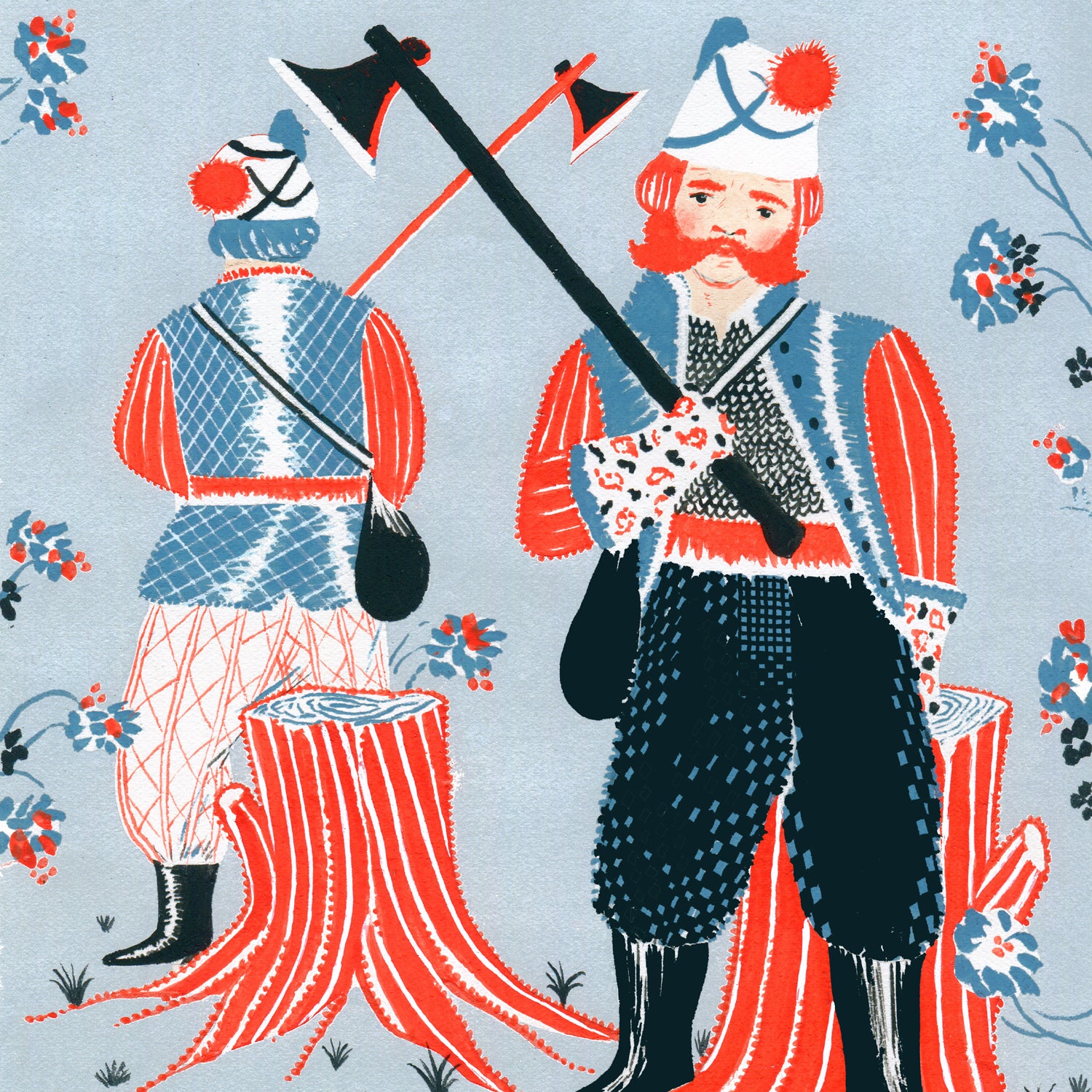The first woodcutters you meet in Annie Proulx’s magnificent new novel about deforestation, ($32, Scribner), are a couple of illiterate Frenchmen who arrive in Canada (then called New France) in the late 1600s. René Sel and Charles Duquet work side by side as indentured servants, sleeping in a windowless cowshed and chopping down trees amid the “mind-numbing abundance of virgin resources.” Then they hurry off to their fates: Sel to marry a First Nations healer of great wisdom, Duquet to found an ambition-choked timber empire that will last for generations.
 Barkskins (, Scribner).
Barkskins (, Scribner).The novel follows their progeny across time, hopscotching from Maine to 18th-century Guangzhou, from New Brunswick to New Zealand, from pre–Civil War Chicago to contemporary Nova Scotia. Along the way, Proulx gives voice to “barkskins” (or woodsmen) of every stripe: including a good-natured gay Mi’kmaw river driver and a brilliant but rapacious lumber empress more interested in board feet than in her newborn son.
It’s the sort of epic that has extensive family trees printed in the back. But here’s the surprise: for a 736-page multigenerational doorstop about resource extraction, Barkskins flies. Though I’ve never met Proulx, I share a publisher and editor with her, and I’ve bought and read every book she’s written. Barkskins might be my favorite. It possesses the dark humor of her Newfoundland–set bestseller , the social awareness of and her other Wyoming stories, and the meticulous historical detailing of and , which send characters traipsing across the North American continent.
Barkskins consists of ten novellas placed back to back; each scurries through a lifespan or two, then hurtles forward, allowing Proulx to maintain pace while dispatching characters with her usual zest: they are scalped, sewn shut with their own leg tendons, burned to death, frozen to death, and even eaten.
One of the chief pleasures of Proulx’s prose is that it conveys you to so many vanished wildwoods, where you get to stand “tiny and amazed in the kingdom of the pines.”
Her true protagonists, though, are not the Sels and the Duquets but the earth’s stupendous precolonial forests: the white pines of New England that grew so thick that their pollen rained on ships at sea, the seemingly limitless pineries of Michigan, the legendary coniferous kauri of New Zealand, “pale grey columns as wide as European houses.” One of the chief pleasures of Proulx’s prose is that it conveys you to so many vanished wildwoods, where you get to stand “tiny and amazed in the kingdom of the pines.”
This is also the great sadness of Barkskins. The propulsive tension here is generated not by wondering what will happen to each character, but by knowing that the forests will be leveled one after another. With each page my grief became more acute. As one old forester says late in the novel, “They all go down when men come.”
Ecologists sometimes talk about shifting-baseline syndrome—the idea that the natural world we experience as children programs us for how an unspoiled world should look, even if we’re seeing only a shadow of the biodiversity our ancestors knew. Nothing I’ve experienced has illustrated this syndrome so profoundly as Barkskins. When Sel and Duquet first arrive in Canada, their feudal seigneur tells them, “It is the forest of the world. It is infinite. It twists around as a snake swallows its own tail and has no end and no beginning. No one has ever seen its farthest dimension.”
Seven hundred pages and three hundred years later, a Sel descendant tells two students, “The deep forests are gone and now the climate shifts. Can you figure out for yourselves that the old medicine plants grew in a different world?”
Can novels do more than instruct and entertain? Can they compel readers to create real change in the world? I pray they can. On a warming planet where we lose around eight million acres of forest each year—about 12 football fields per minute—understanding how we got here has never been more important. If Barkskins doesn’t bear exquisite witness to our species’s insatiable appetite for consumption, nothing can.


